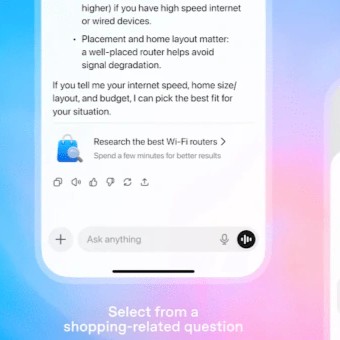What is Agentic AI?
Agentic AI is not just another generative-AI tool. Unlike typical AI that passively responds to user queries — such as summarizing text or generating images — agentic AI takes real-world actions on behalf of users. It sets objectives, plans a sequence of steps, interacts with external tools or platforms (like flight-booking websites), and executes tasks with minimal human oversight.
Key hallmarks of agentic AI include: autonomous decision-making, goal-driven workflows, tool integration (APIs, databases, booking portals), adaptive learning from feedback, and state/memory management for multi-step tasks.
In simpler terms: if generative AI is like a helpful assistant that drafts your emails or answers questions, agentic AI aims to be like a personal concierge — capable of booking your flight, reserving hotels, and managing travel logistics end-to-end.
Agentic AI Meets Travel: How the Journey Changes
From Suggestions to Action
For years, AI has helped travellers by offering suggestions — flight comparisons, hotel recommendations, itinerary ideas. What’s new with agentic AI is that it can act, not just advise. For example, a traveller might provide broad parameters like travel dates, budget, preferences — and the AI agent could autonomously search across multiple platforms, find the best options, and complete a booking.
The appeal is obvious: no more toggling across websites, no manual comparisons, no tedious price-tracking. Instead, travellers get a streamlined, hands-off booking experience — with the AI handling everything behind the scenes.
Real-Time Personalization & Adaptive Support
Agentic agents are not one-size-fits-all. They can dynamically adjust to user preferences (budget, stop-overs, travel class), keep track of changing conditions (flight delays, availability), and even rebook or notify you when better deals appear — all without manual intervention. This kind of hyper-personalized, real-time travel orchestration marks a leap forward.
Some proponents liken it to having a 24×7 travel assistant — always watching markets, scanning for deals, reacting to schedule changes, and finalizing bookings as per your preferences.
Where Industry Players Stand: Early Adoption & Experimentation
Major players in the travel ecosystem — including online travel agencies and search platforms — are already experimenting with agentic AI. According to a recent report cited by media outlets, around 80% of travel executives expect to offer agentic-AI tools at scale within the next five years.
While none of these tools have yet achieved full autonomous booking (for most users), companies are enabling advanced search-and-compare features, dynamic price tracking, and semi-automated booking workflows — as a precursor to full autonomy.
Some executives describe agentic systems as “personal assistants” rather than just fancy search engines. The vision: travelers provide the broad strokes (dates, budget, preferences), and the AI handles the rest — from booking to ticketing.
Trust, Concerns and Adoption Barriers
Despite the promise, widespread adoption remains cautious. A recent 2025 survey found only 2% of travellers willing to allow AI full autonomy for booking or modifying plans — even after human guidance.
Major concerns revolve around:
- Accuracy & reliability: If an AI picks the wrong flight, hotel, or misinterprets visa or travel-restrictions — the baggage lies with the traveller. Some AI systems have been known to “hallucinate” or provide incorrect information.
- Privacy & security: Users need to share payment credentials and personal information. Many are uneasy about handing over such sensitive data to AI agents.
- Loss of control / transparency: Some fear that giving an AI agent full control removes human oversight, making it hard to track decisions or intervene if something goes wrong.
Industry insiders argue that robust safeguards, transparent policies, and gradual adoption — keeping human-in-the-loop initially — are essential before full autonomy.
Beyond Travel: What Agentic AI Means for the Future
While travel bookings capture headlines, agentic AI’s utility extends far beyond. The technology is being explored across sectors like finance (automated portfolio adjustments), enterprise workflows (automated reporting, data processing), customer support (resolving issues end-to-end), scientific research (orchestrating experiments), cybersecurity (autonomous threat detection), and more.
According to a recent comprehensive survey of developments between 2018–2025, agentic systems now fall broadly into two architectural paradigms: symbolic/classical (rule- and logic-driven) and neural/generative (machine-learning based, LLM-driven). Each paradigm has trade-offs: symbolic agents excel in safety-critical tasks, while neural systems offer flexibility and adaptability in data-rich environments.
Many experts suggest the future will likely involve hybrid architectures, combining the reliability of symbolic systems with the adaptability of neural agents — paving the way for robust yet flexible autonomous systems.
Conclusion: A Brave New World — But Proceed With Eyes Open
Agentic AI stands at the frontier of what’s possible with machine intelligence. From booking flights and hotels to managing complex workflows across industries — these autonomous agents have the potential to redefine convenience, efficiency, and personalization in the digital era.
Yet, as much as the promise is compelling, challenges remain: trust, transparency, accuracy, and privacy cannot be overlooked. For users and organisations alike, the prudent path lies in gradual adoption, clear safeguards, and human-in-the-loop oversight — building confidence even as AI agents take on more responsibility.
The AI revolution isn’t coming — it’s here. But whether we let the agents take the wheel entirely depends on how intelligently we steer.
Source:indianexpressGPT







